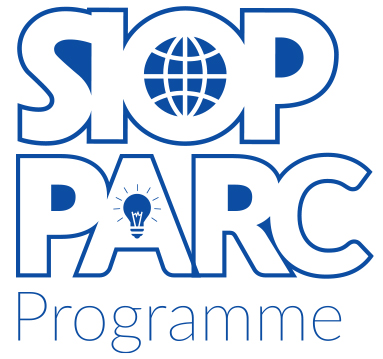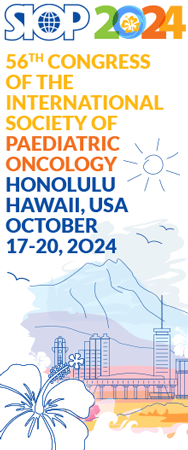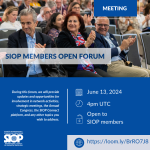 Through the PARC Program to bolster pediatric oncology clinical research infrastructure in low income countries (LICs) and middle income countries (MICs), SIOP will enhance the capacity for research-informed treatment to improve the care and cure of children with cancer.
Through the PARC Program to bolster pediatric oncology clinical research infrastructure in low income countries (LICs) and middle income countries (MICs), SIOP will enhance the capacity for research-informed treatment to improve the care and cure of children with cancer.
Established in March 2022 and governed by a Committee of prominent leaders in global pediatric oncology, the PARC Program seeks to 1) enable SIOP members and partners to expand research capacity in order to generate local evidence for cure and care, 2) advocate for increased use of research to provide evidence that optimizes the outcomes for children with cancer, and 3) mobilize resources for clinical research capacity development in LICs and MICs.
With funds from Amazon and Foundation S, the PARC Committee, headed by Dr. Guillermo Chantada, has identified several cooperative groups to receive grant support for capacity development work. In Latin America, PARC has identified the Latin American Group of Paediatric Oncology (GALOP) for its first grant investment.
GALOP, created in 2008 under the auspices of the Children Oncology Group (COG), is a multinational cooperative group for clinical trials in childhood tumours in Latin America. With the support from the PARC Program, GALOP will be able to operate fully as a formal institution and will further develop its capacity to build sustainable structures to continue performing high-quality pragmatic clinical research through three distinct courses of action.
The first course of action will tackle the consolidation and formalization of GALOP as an international civil society organization (CSO), in accordance with applicable laws in Uruguay and the region. Recent regional health research regulations demand a higher level of compliance and a more formal procedure for data and specimen sharing for future studies. To achieve this goal, GALOP will engage legal consultants, in accordance with each country’s health research, patient safety and data protection body of laws and regulations.
The second course of action that GALOP will develop is directly related to research capacity building: the addition of human resources to support the researchers, the training of key personnel, as well as the necessary support of a platform for data capture that will allow GALOP to create good quality secure data and to improve the quality of data collection.
The third course of action will focus on the expansion of GALOP to more centers and more protocols. In addition to the already active protocols on retinoblastoma, osteosarcoma, Ewing sarcoma, germ cell tumours and medulloblastoma, GALOP has chosen two tumours (renal tumours and Langerhans cell histiocytosis) where there is already a GALOP group of interested members, with local expertise in which a pragmatic protocol may be developed as a demonstration project for GALOP expansion. Wilms tumour was chosen by WHO GICC as an example of multidisciplinary treatment whose improvement can be reflected in other solid tumour approaches and contribute to expanding the capacity of countries to deliver best practices in childhood cancer care.
Latin America has a long tradition of research in histiocytosis with participation in international initiatives and local translational research projects. During 2021, GALOP facilitated a Latin American collaboration between regional cooperative groups, to generate a diagnostic and treatment proposal for this rare disease, within the framework of connection, debate, and cooperation. As a result of the PARC Program, GALOP will propose an adapted original protocol of continental outreach as well as an online platform for discussing difficult cases.






